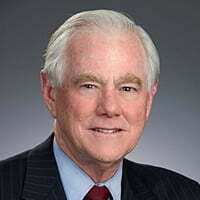 2025 – Perry N. Halkitis
2025 – Perry N. Halkitis
Dr. Perry N. Halkitis is an infectious disease epidemiologist, applied statistician, and public health psychologist. He conducts this work through his research, teaching, and activism. Dr. Halkitis is currently Dean, Hunterdon Professor of Public Health & Health Equity, and Distinguished Professor of Biostatistics & Epidemiology at the Rutgers School of Public Health, as well as the founder and Director of the Center for Health, Identity, Behavior & Prevention Studies.
Dr. Beech is currently the Principal Investigator (PI) or Multiple Principal Investigator (MPI) of three major NIH grants which include the HEALTH-RCMI, a center grant in the Research Centers in Minority Institutions consortium focusing on addictions and cancer prevention; AIM-AHEAD – a national consortium grant tasked to diversify the field of data science and the use of diverse data sets in Artificial Intelligence and Machine Learning (AI/ML) studies designed to promote health equity; and the Obesity Health Disparities Program for Inclusion and Diversity among Individuals Engaged in Health Related Research (OHD PRIDE) – a research training and mentoring program for individuals from backgrounds underrepresented in the biomedical and behavioral sciences. Her current research also leverages multi-sector partnerships to conduct late-stage translational research examining the impact of loneliness and social isolation on obesity-induced hypertension and cardiovascular disease reversal interventions using defined plant-based diets among African Americans. Dr. Beech has published over 150 peer-reviewed journal articles, book chapters, and reports focusing on the full range of determinants impacting the cardiovascular health and well-being of African Americans. She is currently an associate editor of Ethnicity and Disease, is an editorial board member of Population Health Management, and lead editor of the first (2004) and second edition of Race and Research: Perspectives on Minority Participation in Health Studies (2024) published by the American Public Health Association.
Dr. Beech has been an active member of IAPHS since the early years of the organization when she was the Founding Dean of the John D. Bower School of Population Health at the University of Mississippi Medical Center (2016-2020). Her involvement in IAPHS deepened since joining the University of Houston (UH) as she established the first undergraduate chapter for IAPHS, served on the Awards Committee, and facilitated the establishment of the Humana Foundation Excellence in Health Equity Award. Dr. Beech has introduced faculty and students to IAPHS through institutional memberships as well as university fellowships sponsoring undergraduate and graduate student travel to annual IAPHS meetings. She earned a DrPH in Community Health Science from the University of Texas Health Science Center School of Public Health, received postdoctoral training in behavioral science at M.D. Anderson Cancer Center, training in population health from the Thomas Jefferson College of Population Health and completed leadership training from the American Council on Education (ACE) and from the Hedwig van Ameringen Executive Leadership in Academic Medicine (ELAM). Dr. Beech was also recently elected as a Fellow of the American Heart Association.
Dr. Harris served as director and principal investigator of the National Longitudinal Study of Adolescent to Adult Health (Add Health) from 2004-2021 (deputy director 1999-2004). She developed Add Health into a landmark study funded by NIH institutes and agencies in which she integrated biological and genomic data for scientific study of developmental and health trajectories across the early life course.
He previously held academic and leadership positions at the University of Michigan and at the New York Academy of Medicine.
In his own scholarship, Dr. Galea is centrally interested in the social production of health of urban populations, with a focus on the causes of brain disorders, particularly common mood-anxiety disorders and substance abuse. He has long had a particular interest in the consequences of mass trauma and conflict worldwide, including as a result of the September 11 attacks, Hurricane Katrina, conflicts in sub-Saharan Africa, and the American wars in Iraq and Afghanistan. This work has been principally funded by the National Institutes of Health, Centers for Disease Control and Prevention, and several foundations. He has published over 500 scientific journal articles, 50 chapters and commentaries, and 9 books and his research has been featured extensively in current periodicals and newspapers. His latest book, co-authored with Dr. Katherine Keyes, is an epidemiology textbook, Epidemiology Matters: a new introduction to methodological foundations.
Dr. Galea has a medical degree from the University of Toronto, and graduate degrees from Harvard University and Columbia University. He was named one of TIME magazine’s epidemiology innovators in 2006. He is past-president of the Society for Epidemiologic Research and an elected member of the American Epidemiological Society and of the Institute of Medicine of the National Academies of Science.
Dr. Galea serves frequently on advisory groups to national and international organizations. He has formerly served as chair of the New York City Department of Health and Mental Hygiene’s Community Services Board and as member of its Health Board.
He has published extensively on population health including his 1997 book “Purchasing Population Health: Paying for Results” and the widely cited 2003 American Journal of Public Health article with Greg Stoddart “What is Population Health?” From 2011 to 2103 he was Editor of the “Improving Population Health” blog. He has remained active in his Emeritus role: His paper “Population Health Improvement: A Community Health Business Model” with George Isham won the the 2014 ACHE Dean Conley Article of the Year Award; his “Meeting the Institute of Medicine’s 2030 US Life Expectancy Target” was AJPH Editor’s Choice in 2018; and he has contributed occasionally to the IAPHS blog including “A Population Health Boot Camp” in 2020.
He received a B.A. from Carleton College in 1962 and M.D. and Ph.D. degrees from the University of Chicago School of Medicine in 1968. He completed residency training in Social Pediatrics at Montefiore Hospital in 1971. He was Director of Montefiore Hospital and Medical Center (1976-80), Deputy Director of the Bureau of Health Manpower, U.S. DHEW (1974-76), and the First Medical Director of the National Health Services Corps (1971-73). He was National President of the Student American Medical Association in 1967-68. He was Senior Advisor to Donna Shalala, Secretary of Health and Human Services from 1993-95. In 1996 he was elected to the Institute of Medicine, National Academy of Sciences. (See more at www.pophealth.org).
He lives with his wife Margi, has three children and six grandchildren, enjoys wood splitting and carving, fly-fishing, prairie restoration, and reading political biography and western literature.
 2024 – Bettina M. Beech
2024 – Bettina M. Beech
Bettina M. Beech, DrPH, MPH, FAHA is the Chief Population Health Officer and Founder of UH Population Health, and a Clinical Professor at the University of Houston. She is a population and public health scientist whose work spans clinical, community-partnered, and health policy research by examining risk factors for cardiometabolic diseases with a focus on reducing health disparities and improving minority health. Dr. Beech’s research focuses on designing and evaluating multi-level interventions to improve health outcomes and quality-of-life among underrepresented and under-resourced populations. Read more
Dr. Beech is currently the Principal Investigator (PI) or Multiple Principal Investigator (MPI) of three major NIH grants which include the HEALTH-RCMI, a center grant in the Research Centers in Minority Institutions consortium focusing on addictions and cancer prevention; AIM-AHEAD – a national consortium grant tasked to diversify the field of data science and the use of diverse data sets in Artificial Intelligence and Machine Learning (AI/ML) studies designed to promote health equity; and the Obesity Health Disparities Program for Inclusion and Diversity among Individuals Engaged in Health Related Research (OHD PRIDE) – a research training and mentoring program for individuals from backgrounds underrepresented in the biomedical and behavioral sciences. Her current research also leverages multi-sector partnerships to conduct late-stage translational research examining the impact of loneliness and social isolation on obesity-induced hypertension and cardiovascular disease reversal interventions using defined plant-based diets among African Americans. Dr. Beech has published over 150 peer-reviewed journal articles, book chapters, and reports focusing on the full range of determinants impacting the cardiovascular health and well-being of African Americans. She is currently an associate editor of Ethnicity and Disease, is an editorial board member of Population Health Management, and lead editor of the first (2004) and second edition of Race and Research: Perspectives on Minority Participation in Health Studies (2024) published by the American Public Health Association.
Dr. Beech has been an active member of IAPHS since the early years of the organization when she was the Founding Dean of the John D. Bower School of Population Health at the University of Mississippi Medical Center (2016-2020). Her involvement in IAPHS deepened since joining the University of Houston (UH) as she established the first undergraduate chapter for IAPHS, served on the Awards Committee, and facilitated the establishment of the Humana Foundation Excellence in Health Equity Award. Dr. Beech has introduced faculty and students to IAPHS through institutional memberships as well as university fellowships sponsoring undergraduate and graduate student travel to annual IAPHS meetings. She earned a DrPH in Community Health Science from the University of Texas Health Science Center School of Public Health, received postdoctoral training in behavioral science at M.D. Anderson Cancer Center, training in population health from the Thomas Jefferson College of Population Health and completed leadership training from the American Council on Education (ACE) and from the Hedwig van Ameringen Executive Leadership in Academic Medicine (ELAM). Dr. Beech was also recently elected as a Fellow of the American Heart Association
Dr. Beech is currently the Principal Investigator (PI) or Multiple Principal Investigator (MPI) of three major NIH grants which include the HEALTH-RCMI, a center grant in the Research Centers in Minority Institutions consortium focusing on addictions and cancer prevention; AIM-AHEAD – a national consortium grant tasked to diversify the field of data science and the use of diverse data sets in Artificial Intelligence and Machine Learning (AI/ML) studies designed to promote health equity; and the Obesity Health Disparities Program for Inclusion and Diversity among Individuals Engaged in Health Related Research (OHD PRIDE) – a research training and mentoring program for individuals from backgrounds underrepresented in the biomedical and behavioral sciences. Her current research also leverages multi-sector partnerships to conduct late-stage translational research examining the impact of loneliness and social isolation on obesity-induced hypertension and cardiovascular disease reversal interventions using defined plant-based diets among African Americans. Dr. Beech has published over 150 peer-reviewed journal articles, book chapters, and reports focusing on the full range of determinants impacting the cardiovascular health and well-being of African Americans. She is currently an associate editor of Ethnicity and Disease, is an editorial board member of Population Health Management, and lead editor of the first (2004) and second edition of Race and Research: Perspectives on Minority Participation in Health Studies (2024) published by the American Public Health Association.
Dr. Beech has been an active member of IAPHS since the early years of the organization when she was the Founding Dean of the John D. Bower School of Population Health at the University of Mississippi Medical Center (2016-2020). Her involvement in IAPHS deepened since joining the University of Houston (UH) as she established the first undergraduate chapter for IAPHS, served on the Awards Committee, and facilitated the establishment of the Humana Foundation Excellence in Health Equity Award. Dr. Beech has introduced faculty and students to IAPHS through institutional memberships as well as university fellowships sponsoring undergraduate and graduate student travel to annual IAPHS meetings. She earned a DrPH in Community Health Science from the University of Texas Health Science Center School of Public Health, received postdoctoral training in behavioral science at M.D. Anderson Cancer Center, training in population health from the Thomas Jefferson College of Population Health and completed leadership training from the American Council on Education (ACE) and from the Hedwig van Ameringen Executive Leadership in Academic Medicine (ELAM). Dr. Beech was also recently elected as a Fellow of the American Heart Association.
Dr. Harris served as director and principal investigator of the National Longitudinal Study of Adolescent to Adult Health (Add Health) from 2004-2021 (deputy director 1999-2004). She developed Add Health into a landmark study funded by NIH institutes and agencies in which she integrated biological and genomic data for scientific study of developmental and health trajectories across the early life course.
He previously held academic and leadership positions at the University of Michigan and at the New York Academy of Medicine.
In his own scholarship, Dr. Galea is centrally interested in the social production of health of urban populations, with a focus on the causes of brain disorders, particularly common mood-anxiety disorders and substance abuse. He has long had a particular interest in the consequences of mass trauma and conflict worldwide, including as a result of the September 11 attacks, Hurricane Katrina, conflicts in sub-Saharan Africa, and the American wars in Iraq and Afghanistan. This work has been principally funded by the National Institutes of Health, Centers for Disease Control and Prevention, and several foundations. He has published over 500 scientific journal articles, 50 chapters and commentaries, and 9 books and his research has been featured extensively in current periodicals and newspapers. His latest book, co-authored with Dr. Katherine Keyes, is an epidemiology textbook, Epidemiology Matters: a new introduction to methodological foundations.
Dr. Galea has a medical degree from the University of Toronto, and graduate degrees from Harvard University and Columbia University. He was named one of TIME magazine’s epidemiology innovators in 2006. He is past-president of the Society for Epidemiologic Research and an elected member of the American Epidemiological Society and of the Institute of Medicine of the National Academies of Science.
Dr. Galea serves frequently on advisory groups to national and international organizations. He has formerly served as chair of the New York City Department of Health and Mental Hygiene’s Community Services Board and as member of its Health Board.
He has published extensively on population health including his 1997 book “Purchasing Population Health: Paying for Results” and the widely cited 2003 American Journal of Public Health article with Greg Stoddart “What is Population Health?” From 2011 to 2103 he was Editor of the “Improving Population Health” blog. He has remained active in his Emeritus role: His paper “Population Health Improvement: A Community Health Business Model” with George Isham won the the 2014 ACHE Dean Conley Article of the Year Award; his “Meeting the Institute of Medicine’s 2030 US Life Expectancy Target” was AJPH Editor’s Choice in 2018; and he has contributed occasionally to the IAPHS blog including “A Population Health Boot Camp” in 2020.
He received a B.A. from Carleton College in 1962 and M.D. and Ph.D. degrees from the University of Chicago School of Medicine in 1968. He completed residency training in Social Pediatrics at Montefiore Hospital in 1971. He was Director of Montefiore Hospital and Medical Center (1976-80), Deputy Director of the Bureau of Health Manpower, U.S. DHEW (1974-76), and the First Medical Director of the National Health Services Corps (1971-73). He was National President of the Student American Medical Association in 1967-68. He was Senior Advisor to Donna Shalala, Secretary of Health and Human Services from 1993-95. In 1996 he was elected to the Institute of Medicine, National Academy of Sciences. (See more at www.pophealth.org).
He lives with his wife Margi, has three children and six grandchildren, enjoys wood splitting and carving, fly-fishing, prairie restoration, and reading political biography and western literature.
 2023 – Kathleen Mullan Harris
2023 – Kathleen Mullan Harris
Kathleen Mullan Harrisis the James E. Haar distinguished professor of sociology, adjunct professor of public policy, and faculty fellow at the Carolina Population Center at the University of North Carolina at Chapel Hill. Her research focuses on social inequality and health with particular interests in health disparities, biodemography, sociogenomics, and life course and aging processes. Read more
In his own scholarship, Dr. Galea is centrally interested in the social production of health of urban populations, with a focus on the causes of brain disorders, particularly common mood-anxiety disorders and substance abuse. He has long had a particular interest in the consequences of mass trauma and conflict worldwide, including as a result of the September 11 attacks, Hurricane Katrina, conflicts in sub-Saharan Africa, and the American wars in Iraq and Afghanistan. This work has been principally funded by the National Institutes of Health, Centers for Disease Control and Prevention, and several foundations. He has published over 500 scientific journal articles, 50 chapters and commentaries, and 9 books and his research has been featured extensively in current periodicals and newspapers. His latest book, co-authored with Dr. Katherine Keyes, is an epidemiology textbook, Epidemiology Matters: a new introduction to methodological foundations.
Dr. Galea has a medical degree from the University of Toronto, and graduate degrees from Harvard University and Columbia University. He was named one of TIME magazine’s epidemiology innovators in 2006. He is past-president of the Society for Epidemiologic Research and an elected member of the American Epidemiological Society and of the Institute of Medicine of the National Academies of Science.
Dr. Galea serves frequently on advisory groups to national and international organizations. He has formerly served as chair of the New York City Department of Health and Mental Hygiene’s Community Services Board and as member of its Health Board.
He has published extensively on population health including his 1997 book “Purchasing Population Health: Paying for Results” and the widely cited 2003 American Journal of Public Health article with Greg Stoddart “What is Population Health?” From 2011 to 2103 he was Editor of the “Improving Population Health” blog. He has remained active in his Emeritus role: His paper “Population Health Improvement: A Community Health Business Model” with George Isham won the the 2014 ACHE Dean Conley Article of the Year Award; his “Meeting the Institute of Medicine’s 2030 US Life Expectancy Target” was AJPH Editor’s Choice in 2018; and he has contributed occasionally to the IAPHS blog including “A Population Health Boot Camp” in 2020.
He received a B.A. from Carleton College in 1962 and M.D. and Ph.D. degrees from the University of Chicago School of Medicine in 1968. He completed residency training in Social Pediatrics at Montefiore Hospital in 1971. He was Director of Montefiore Hospital and Medical Center (1976-80), Deputy Director of the Bureau of Health Manpower, U.S. DHEW (1974-76), and the First Medical Director of the National Health Services Corps (1971-73). He was National President of the Student American Medical Association in 1967-68. He was Senior Advisor to Donna Shalala, Secretary of Health and Human Services from 1993-95. In 1996 he was elected to the Institute of Medicine, National Academy of Sciences. (See more at www.pophealth.org).
He lives with his wife Margi, has three children and six grandchildren, enjoys wood splitting and carving, fly-fishing, prairie restoration, and reading political biography and western literature.
 2022 – Sandro Galea
2022 – Sandro Galea
Sandro Galea, M.D., M.P.H., Dr.P.H., is a physician and an epidemiologist. He is Dean and Professor at the Boston University School of Public Health. Prior to his appointment at Boston University, Dr. Galea served as the Anna Cheskis Gelman and Murray Charles Gelman Professor and Chair of the Department of Epidemiology at the Columbia University Mailman School of Public Health where he launched several new educational initiatives and substantially increased its focus on six core areas: chronic, infectious, injury, lifecourse, psychiatric/neurological, and social epidemiology. Read more
In his own scholarship, Dr. Galea is centrally interested in the social production of health of urban populations, with a focus on the causes of brain disorders, particularly common mood-anxiety disorders and substance abuse. He has long had a particular interest in the consequences of mass trauma and conflict worldwide, including as a result of the September 11 attacks, Hurricane Katrina, conflicts in sub-Saharan Africa, and the American wars in Iraq and Afghanistan. This work has been principally funded by the National Institutes of Health, Centers for Disease Control and Prevention, and several foundations. He has published over 500 scientific journal articles, 50 chapters and commentaries, and 9 books and his research has been featured extensively in current periodicals and newspapers. His latest book, co-authored with Dr. Katherine Keyes, is an epidemiology textbook, Epidemiology Matters: a new introduction to methodological foundations.
Dr. Galea has a medical degree from the University of Toronto, and graduate degrees from Harvard University and Columbia University. He was named one of TIME magazine’s epidemiology innovators in 2006. He is past-president of the Society for Epidemiologic Research and an elected member of the American Epidemiological Society and of the Institute of Medicine of the National Academies of Science.
Dr. Galea serves frequently on advisory groups to national and international organizations. He has formerly served as chair of the New York City Department of Health and Mental Hygiene’s Community Services Board and as member of its Health Board.
He has published extensively on population health including his 1997 book “Purchasing Population Health: Paying for Results” and the widely cited 2003 American Journal of Public Health article with Greg Stoddart “What is Population Health?” From 2011 to 2103 he was Editor of the “Improving Population Health” blog. He has remained active in his Emeritus role: His paper “Population Health Improvement: A Community Health Business Model” with George Isham won the the 2014 ACHE Dean Conley Article of the Year Award; his “Meeting the Institute of Medicine’s 2030 US Life Expectancy Target” was AJPH Editor’s Choice in 2018; and he has contributed occasionally to the IAPHS blog including “A Population Health Boot Camp” in 2020.
He received a B.A. from Carleton College in 1962 and M.D. and Ph.D. degrees from the University of Chicago School of Medicine in 1968. He completed residency training in Social Pediatrics at Montefiore Hospital in 1971. He was Director of Montefiore Hospital and Medical Center (1976-80), Deputy Director of the Bureau of Health Manpower, U.S. DHEW (1974-76), and the First Medical Director of the National Health Services Corps (1971-73). He was National President of the Student American Medical Association in 1967-68. He was Senior Advisor to Donna Shalala, Secretary of Health and Human Services from 1993-95. In 1996 he was elected to the Institute of Medicine, National Academy of Sciences. (See more at www.pophealth.org).
He lives with his wife Margi, has three children and six grandchildren, enjoys wood splitting and carving, fly-fishing, prairie restoration, and reading political biography and western literature.
 2021 – David Kindig
2021 – David Kindig
David A. Kindig is Emeritus Professor of Population Health Sciences and Emeritus Vice-Chancellor for Health Sciences at the University of Wisconsin-Madison, School of Medicine. He is Emeritus and Founding Co-Chair of the Institute of Medicine Roundtable on Population Health Improvement. He Co-Directed the Wisconsin site of the Robert Wood Johnson Health & Society Scholars Program, was an initial Co-PI on the Robert Wood Johnson MATCH grant under which the County Health Rankings were developed, was the Founder of the RWJF Roadmaps to Health Prize and an IAPHS Founding Board Member. Read more
He has published extensively on population health including his 1997 book “Purchasing Population Health: Paying for Results” and the widely cited 2003 American Journal of Public Health article with Greg Stoddart “What is Population Health?” From 2011 to 2103 he was Editor of the “Improving Population Health” blog. He has remained active in his Emeritus role: His paper “Population Health Improvement: A Community Health Business Model” with George Isham won the the 2014 ACHE Dean Conley Article of the Year Award; his “Meeting the Institute of Medicine’s 2030 US Life Expectancy Target” was AJPH Editor’s Choice in 2018; and he has contributed occasionally to the IAPHS blog including “A Population Health Boot Camp” in 2020.
He received a B.A. from Carleton College in 1962 and M.D. and Ph.D. degrees from the University of Chicago School of Medicine in 1968. He completed residency training in Social Pediatrics at Montefiore Hospital in 1971. He was Director of Montefiore Hospital and Medical Center (1976-80), Deputy Director of the Bureau of Health Manpower, U.S. DHEW (1974-76), and the First Medical Director of the National Health Services Corps (1971-73). He was National President of the Student American Medical Association in 1967-68. He was Senior Advisor to Donna Shalala, Secretary of Health and Human Services from 1993-95. In 1996 he was elected to the Institute of Medicine, National Academy of Sciences. (See more at www.pophealth.org).
He lives with his wife Margi, has three children and six grandchildren, enjoys wood splitting and carving, fly-fishing, prairie restoration, and reading political biography and western literature.
 2020 – Nancy Adler
2020 – Nancy Adler
Nancy E. Adler, Ph.D. is the Lisa and John Pritzker Professor of Psychology in the Departments of Psychiatry and Pediatrics at UCSF and Director of the Center for Health and Community. She received her BA from Wellesley College and her PhD in Social Psychology from Harvard University. Read more
Adler’s early research examined the utility and limitations of rational choice decision models for understanding reproductive health behaviors, including adolescents’ use and non-use of contraception and responses to unwanted pregnancy and to infertility treatment . Growing out of her experience in the MacArthur Foundation Research Network on Health-Promoting and Disease-Preventing Behavior, she established the MacArthur Research Network on SES and Health. She engaged leading researchers from a wide range of disciplines in identifying social, psychological and biological mechanisms by which SES influences health. Her current work includes health effects of subjective social status and interventions to reduce health inequalities.
Adler co-directed the UCSF-UC Berkeley site for the RWJF Health and Society Program and directed an NIMH T32 Fellowship Program, Psychology and Medicine. She currently heads the National Program Office for the RWJF Evidence for Action Program. Adler has served on various advisory committees, including the Advisory Committee to the Director of NIH and the Visiting Committee for the Harvard School of Public Health. She is a member of the National Academy of Medicine (NAM) and the American Academy of Arts and Sciences (AAAS). Adler received the Chancellor’s Award for Advancement of Women, George Sarlo Prize for Excellence in Teaching, Lifetime Achievement in Mentoring Award, and the Lloyd Holly Smith award from UCSF; the James McKeen Cattell Award from the American Psychological Society (APS); Distinguished Scientific Award for the Application of Psychology from the American Psychological Association (APA); the Marion Spencer Fay Award from the Institute for Women’s Health Leadership; the David Rall Medal from the National Academy of Medicine, and the Medal for Distinguished Contributions to Biomedical Research from the New York Academy of Medicine.
 2019 – J. Michael McGinnis
2019 – J. Michael McGinnis
Michael McGinnis, MD, MA, MPP is a longstanding field leader in population health, through his research, publications, and actions. Awarded one of the field’s most prominent recognitions—the 2018 Fries Prize for Improving Health—he was cited for “fundamentally transforming our nation’s understanding about how to improve health by re-conceptualizing the nation’s perspective on its leading health threats [see Actual Causes of Death in the United States (JAMA) and The Case for More Active Policy Attention to Health Promotion (Health Affairs)], and establishing the Healthy People process of national goals and objectives to target action.” Read more
In addition, as founding director of the health group at the Robert Wood Johnson Foundation, he conceived and led the establishment of the Health & Society Scholars Program and the Young Epidemiology Scholars Program, as well as a suite of grantmaking activities targeted to building the field of population health. Earlier, in a tenure unusual for political and policy posts, he held continuous appointments through the Carter, Reagan, Bush, and Clinton Administrations at the Department of Health and Human Services, with policy responsibilities for disease prevention and health promotion. In this capacity, he was founder and steward of various still ongoing programs and policies, including: the Healthy People program, the HHS/USDA Dietary Guidelines for Americans, the U.S. Preventive Services Task Force, and the Ten Essential Services of Public Health.
Internationally, he served as chair of the World Bank/European Commission Task Force for Health Reconstruction in Bosnia; director of the World Health Organization’s smallpox eradication program in Uttar Pradesh, India, and director of the U.S.-Eastern Europe cooperative health research program. An elected member of the National Academy of Medicine (NAM) and Fellow of he American Association for the Advancement of Science, he is currently NAM Senior Scholar and Leonard D. Schaeffer Executive Officer at the NAM, Executive Director and creator of the NAM Leadership Consortium for a Value & Science-Driven Health System, and founder and facilitator of its Learning Health System initiative. Educated at Berkeley (AB), UCLA (MA, MD), and Harvard’s Kennedy School of Government (MPP), other honorific recognitions include the federal Distinguished Service Medal, the 1996 National Health Leader of the Year award, the 2013 national Public Health Hero Award. Full CV is available here.
